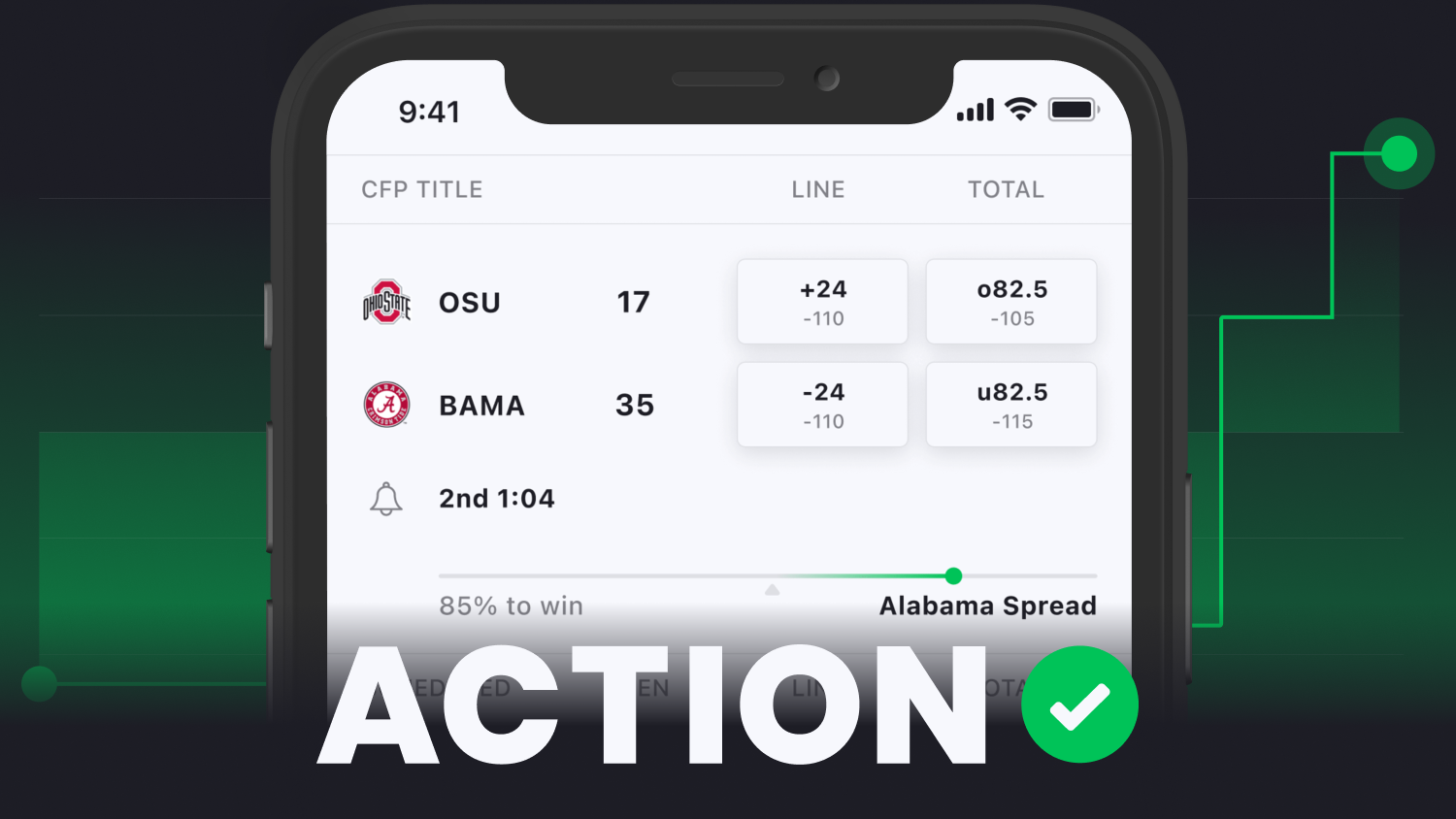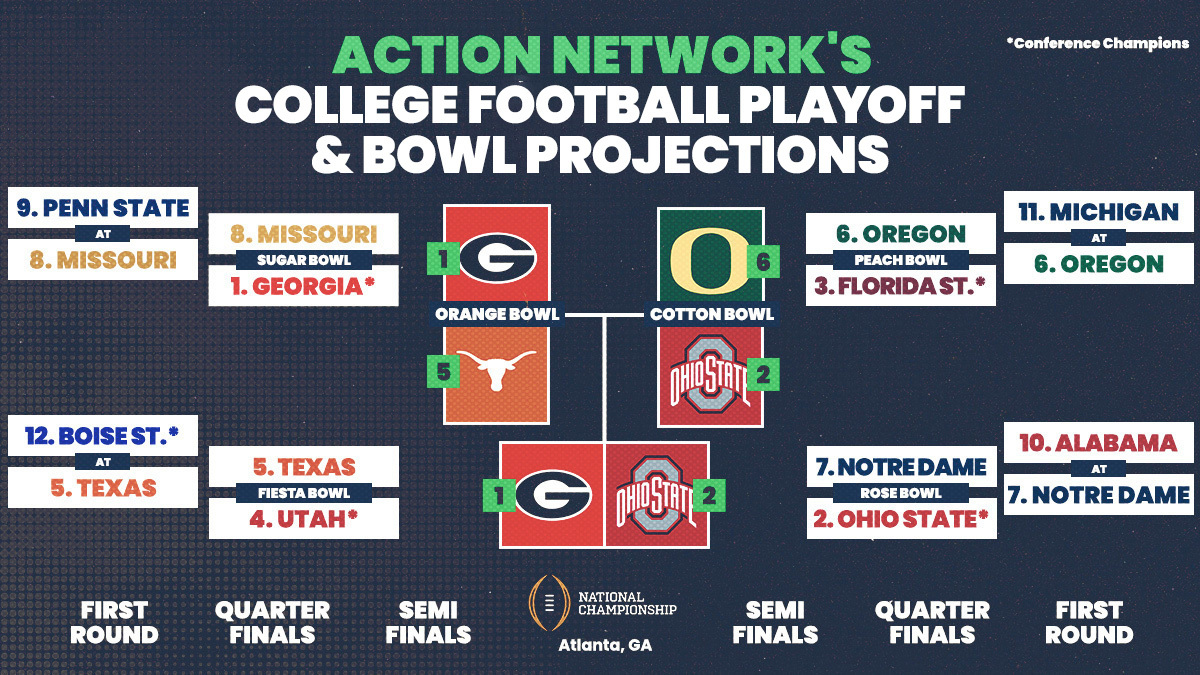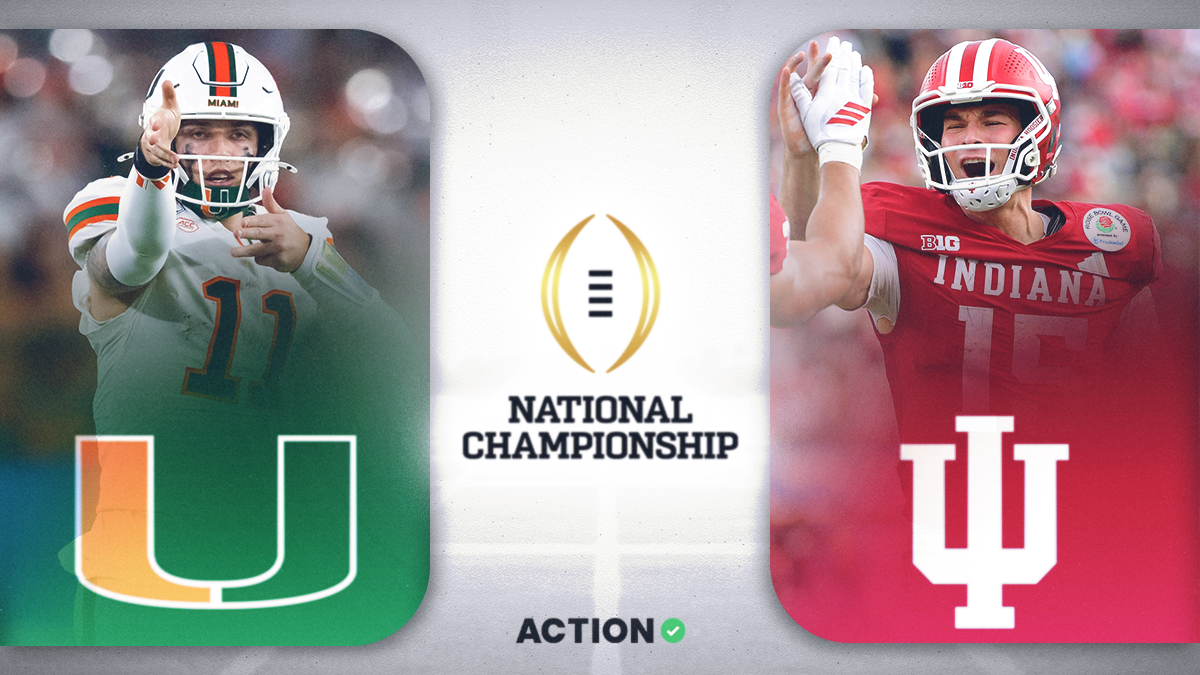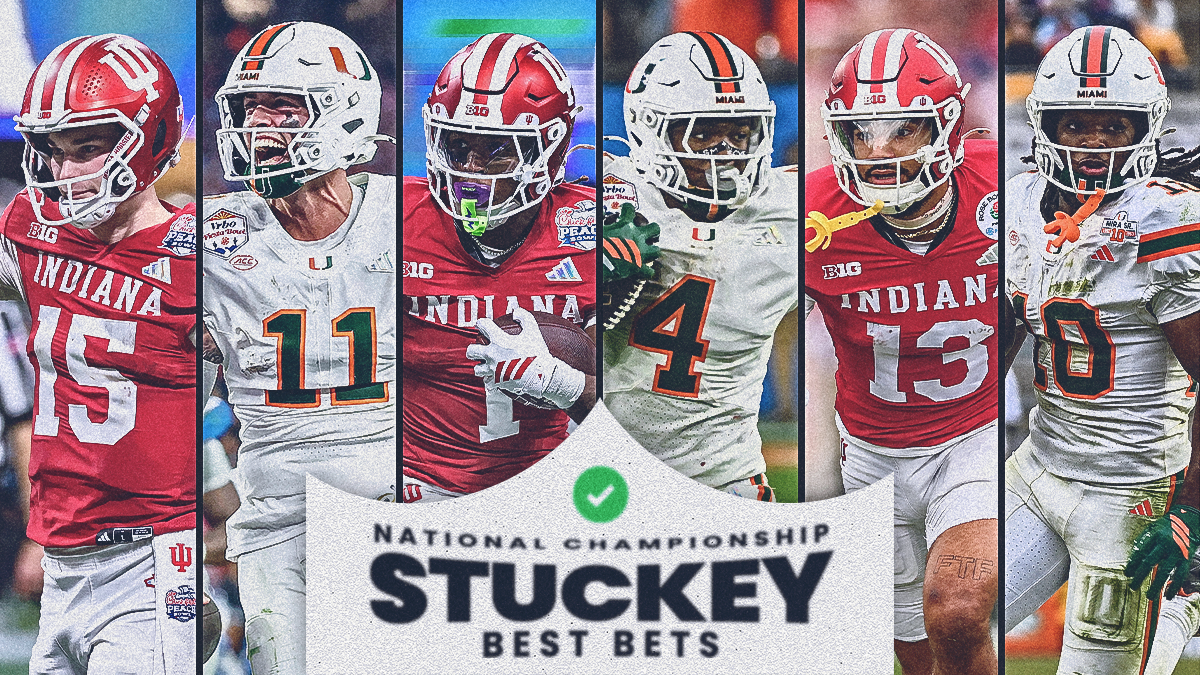Beginning in 2026, there will be yet another new playoff format in college football. What that playoff looks like is still to be determined.
It might stay at 12 teams (doubtful). It could expand to 14 (probably) or maybe even 16 (not likely, but who knows?). Or, perhaps they’ll honor the late, great Mike Leach by implementing the 64-team playoff format that he favored.
One model under “serious consideration,” sources told Action Network, is a 14-team playoff that would grant automatic bids to:
- the SEC’s conference champ and next two highest-ranked teams
- the Big Ten’s conference champ and next two highest-ranked teams
- the ACC’s conference champ and next highest-ranked team
- the Big 12’s conference champ and next highest-ranked team
- the Group of 5’s highest-ranked conference champion
The remaining three bids would go the highest-ranked teams still available, regardless of whether they’re in a conference and/or independent Notre Dame.
However, this 14-team model isn’t so much a playoff as it is an invitational. And a bad one at that.
This latest proposed 14-team model would grant automatic bids to six teams — yes, six! — that did not win their conference. Two non-champions each from the SEC and Big Ten, along with a non-champion from the Big 12 and ACC, would all get into the playoff, regardless of whether they ranked in the top 14 or the top 140.
Just as long as they were one of the two or three best teams from one of those conferences. Yes, membership does have privileges.
Remember the good ol' days? Way back in 2023 when the playoff used to be about determining college football’s best team? It didn't matter if it was the staged national title game at the 1987 Fiesta Bowl between Miami and Penn State, the hated BCS or the four-team College Football Playoff.
Sure, each system had its warts and flaws, but at its core, it was about figuring out college football’s national champion.
This proposed 14-team model? Is cluster**** one word or hyphenated?
While past performance is no guarantee of future results — or so they say — looking back at some of the teams that would have made this 14-team playoff with automatic bids is embarrassing.
In 2019, No. 24 Virginia would've qualified after finishing as the ACC’s second-highest ranked team. The Cavaliers would've been in despite the fact there were four Group of Five teams ranked ahead of UVA: No. 17 Memphis, No. 19 Appalachian State, No. 21 Cincinnati and No. 23 Navy.
In 2018, No. 20 Syracuse would've qualified, finishing as the ACC’s second-highest ranked team. That same year, No. 16 West Virginia was the Big 12’s highest-ranked team (excluding Oklahoma and Texas) and would have been playoff-bound.
Teams ranked 16th, 20th and 24th should spend their holiday playing in a bowl game — or having 75% of its roster opting out of a bowl game — not getting an automatic bid to a playoff to determine college football’s best team.
What other league guarantees more playoff bids to teams strictly based on their division or conference? None. Although, maybe that German ice football league I saw on Twitter the other day may do so.
Imagine if the NFL awarded the NFC East and NFC West three automatic bids, while the NFC South only got two and the NFC North one.
Here’s the bottom line — and I hate to admit it, but I buried the lede — all of the automatic bids are based on getting the most money possible into the pockets of the SEC and Big Ten.
If the SEC and Big Ten — or Big Ten and SEC, if you prefer — get their way (and believe me, they will) and they want this model going forward, it will happen.
The funny thing is the SEC and Big Ten don’t need the automatic bids. They're the biggest and baddest — and richest — kids on the block. They’ve annually dominated the top of the selection committee rankings and will continue to do so.
Here’s a crazy idea: take the 14-highest ranked teams — you know, teams ranked between No. 1 and No. 14 — and put them in the playoff.
If a conference is worried one of its teams might drop out of the top 14 with a loss in its conference championship game, then get rid of the conference title game.
Or create some funky game in place of the conference title game between your fourth- and fifth-place teams, so the winner can climb a few spots in the final ranking. Have your top two or three teams securely established in the top 10, take the week off and rest up for the playoff.
Each league can decide its champion however it wants. Conferences can play a two-game league schedule or 12 league games. It doesn’t matter.
Back in 2014, college football’s presidents and commissioners decided to have a selection committee that ranks the top 25 teams with the top four advancing to its four-team playoff.
So, let them rank the teams, and then the top 12, 14 or 16 qualify for a playoff. And then the league(s) with the most teams in the playoff can earn the most loot, without the farcical automatic bids.




















































